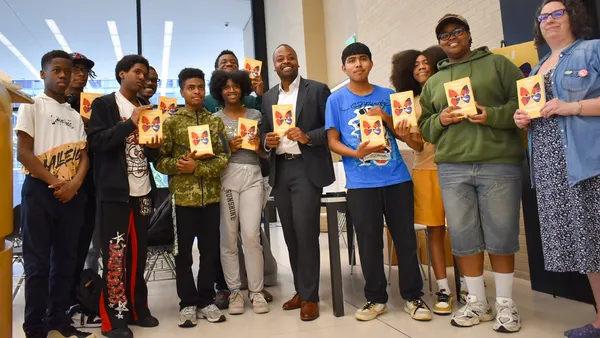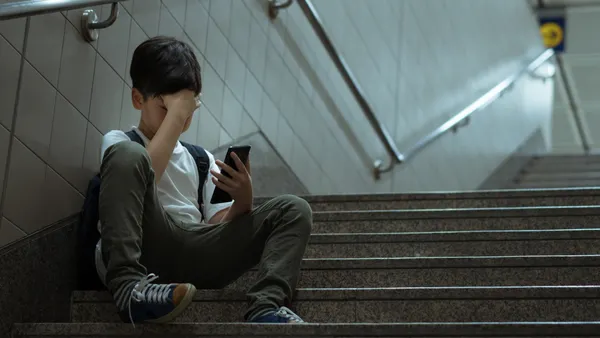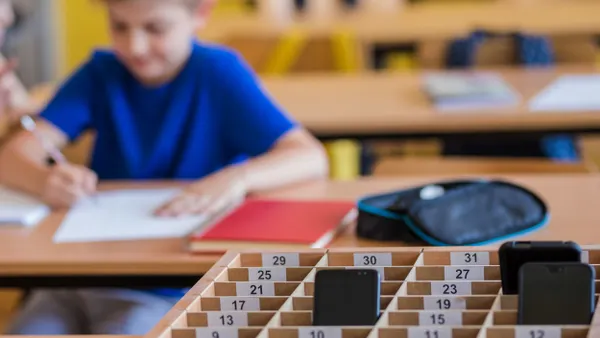Dive Brief:
- Modern debates around classroom models — particularly whether rows of desks or open spaces are most conducive to learning — aren't a recent development, as the '60s and '70s saw an Open Education movement design and build schools around the idea that small, formal, teacher-led classrooms were stifling creativity.
- Though the movement mostly faded, NPR reports, some schools formed under the model survive, including Benjamin Orr Elementary School in southeast Washington, DC.
- The model's openness was meant to facilitate greater collaboration between teachers as well as students, but what NPR's Steve Drummond found during his visit to Orr Elementary was an effort to build walls in a school with wall-less, 30-yard classrooms because the open model was too loud and distracting.
Dive Insight:
While the sentiment of an open classroom where students can move around and learn as they need to — with a student in one grade free to complete work at a different grade level if they're prepared, for example — is enticing from a personalized learning standpoint, it has proven hard to scale over the years. Montessori schools are among those that have had success with it, but they also tend to have much smaller student bodies than the average traditional school model.
Still, efforts to scale the approach to work in a more traditional public school setting persist, especially with the advent of personalized learning tech that could facilitate such efforts. AltSchool, for instance, has partnered with a number of schools, along with operating its own lab schools, as it furthers the development of a personalized learning platform that could eventually provide that scalability. And traditional public schools have once again become more open to the idea of abandoning rows of desks in a teacher-led environment for more collaborative designs as tech-based trends like blended learning have taken hold. With that in mind, it may be worth considering if the Open Education movement was simply ahead of its time and lacked the tools to fully make an impact.











